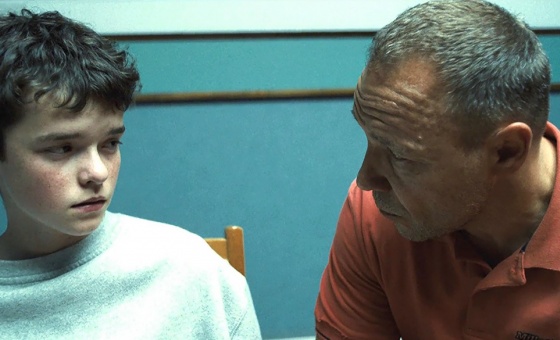This is the last article you can read this month
You can read more article this month
You can read more articles this month
Sorry your limit is up for this month
Reset on:
Please help support the Morning Star by subscribing here
THERE is a liberal cliche that the first casualty of war is the truth. In reality it is usually the working class, the poor, disabled people and ethnic minorities.
Typically, they face more pressure and exploitation, longer hours, higher prices or charges, they get less state support and face greater discrimination all as part of the war effort. Or, more accurately, the war effort is used as the excuse to implement long-desired changes which increase exploitation and discrimination of all kinds.
That is what it is happening now.
To give just one example, both the Chancellor and the Secretary for Work and Pensions separately have said many years ago that we should be tougher on welfare than the Tories.
But it is only now, against the backdrop of the Ukraine war and the rhetoric of rearmament that that they are finally able to realise their ambitions.
Tory commentators are amazed and admiring about the depth of the cuts to welfare. One called Rachel Reeves the new George Osborne
This is true across the board. So it seems strange that many on the left are currently unwilling to link the war drive with the attacks on welfare and the cuts to international aid.
Yet the Chancellor Rachel Reeves explicitly linked the two in her speech introducing the Spring Statement. She devoted roughly equal time to her plans to cut welfare and her plans to increase the military budget.
Apparently, there are lots of secondary benefits from military, which we will address below. But there was no mention of the primary and entirely factual disbenefits of the cuts to welfare.
The two issues are also linked objectively. The Chancellor set arbitrary and “cast in stone” fiscal rules in the Labour manifesto. These were rewritten, recast and then set in stone once more in the October 2024 Budget.
We since learn that the Treasury went back to the Office for Budget Responsibility (OBR) on the eve of the statement with further welfare cuts simply to maintain the same “headroom” (the margin of error on forecast government borrowing) as she had in October.
The Chancellor did not want to be accused of presiding over deteriorating public finances.
This is not simply balancing the books on the backs of the poor. It is presenting the balancing of those books for PR purposes by coming back to take even more from the poor and from disabled people.
The austerity party insists there is no magic money tree. Except, though, for military spending. And cuts were used to finance that rise, while keeping to the same “headroom.”
The government is clearly in denial about its own actions. It is now implementing renewed austerity and doing it at the same time it is increasing military spending. We are often told that to govern is to choose. Yet these policies show that the government is making all the wrong choices.
But the cuts are so deep and the number of victims so wide that broad layers of the population have registered what the government is doing. They do not like it.
In a recent poll for More in Common, 44 per cent of all voters think that welfare reforms are too harsh, 28 per cent think they are about right and only 10 per cent think they are too soft.
In addition, 54 per cent believe that the cuts are about saving money while only 32 per cent think they are about getting people back to work.
In separate polls, these policies are almost as unpopular as Liz Truss’s Budget, while more than two-thirds of Labour members think the party is heading in the wrong direction, up from a half before the Chancellor’s statement.
We cannot yet say the same about the increase in defence spending. But we have hardly begun to make that argument.
Now is the time for peace campaigners, opponents of rearmament and all the forces opposing austerity and the cuts to welfare to come together, under the banner of Welfare, Not Warfare. We need to make that argument loud and clear.
As we do, we will have to confront some of the key arguments made by the supporters of austerity and rearmament. Clearly, the claim that “there is no money left” cannot be stood up, when there are billions of pounds being found for the military budget.
Supporters of these policies have been forced onto another tack, with the claim that money spent will be good for the economy and good for jobs. The Chancellor even talked about spreading these benefits across the country geographically.
But these supposed benefits are a fiction. They cannot be spread, because they do not exist.
Missiles, bullets and tanks cannot help to create anything. Their only purpose is to destroy people and things. They are the opposite of investment in a computer, a factory or a machine tool, all of which add to the productive capacity of the economy as they can be used to make other, useful things. Therefore any funds spent on the military is dead money, a dud investment.
Expenditure on military hardware is also not a significant job creator, as its supporters claim. This is because it is a capital-intensive sector of the economy, not labour-intensive. This point was stressed by the Office of Budget Responsibility in its assessment of the recent Spring Statement.
If the government wants to boost the economy it should invest in housing, health, education, transport and infrastructure. That would provide a lasting boost to the economy, provide real benefits and create many more jobs for the same amount of money.
CND has recently made a strong argument on its blog “Nurses not nukes” about the trade-offs the government is making in practice. £10bn a year is only a part of the nuclear budget. But it could be used instead to fund the winter fuel allowance, universal credit, lift the child benefit cap and restore the planned cuts to Personal Independence Payments (PIP).
All of these could be done with £1bn to spare. Reversing the increase in military spending could also be used for other social goods.
These are all choices. We can choose differently, and better, than current government policy.
Diane Abbott is a Labour member of Parliament for Hackney North and Stoke Newington.











